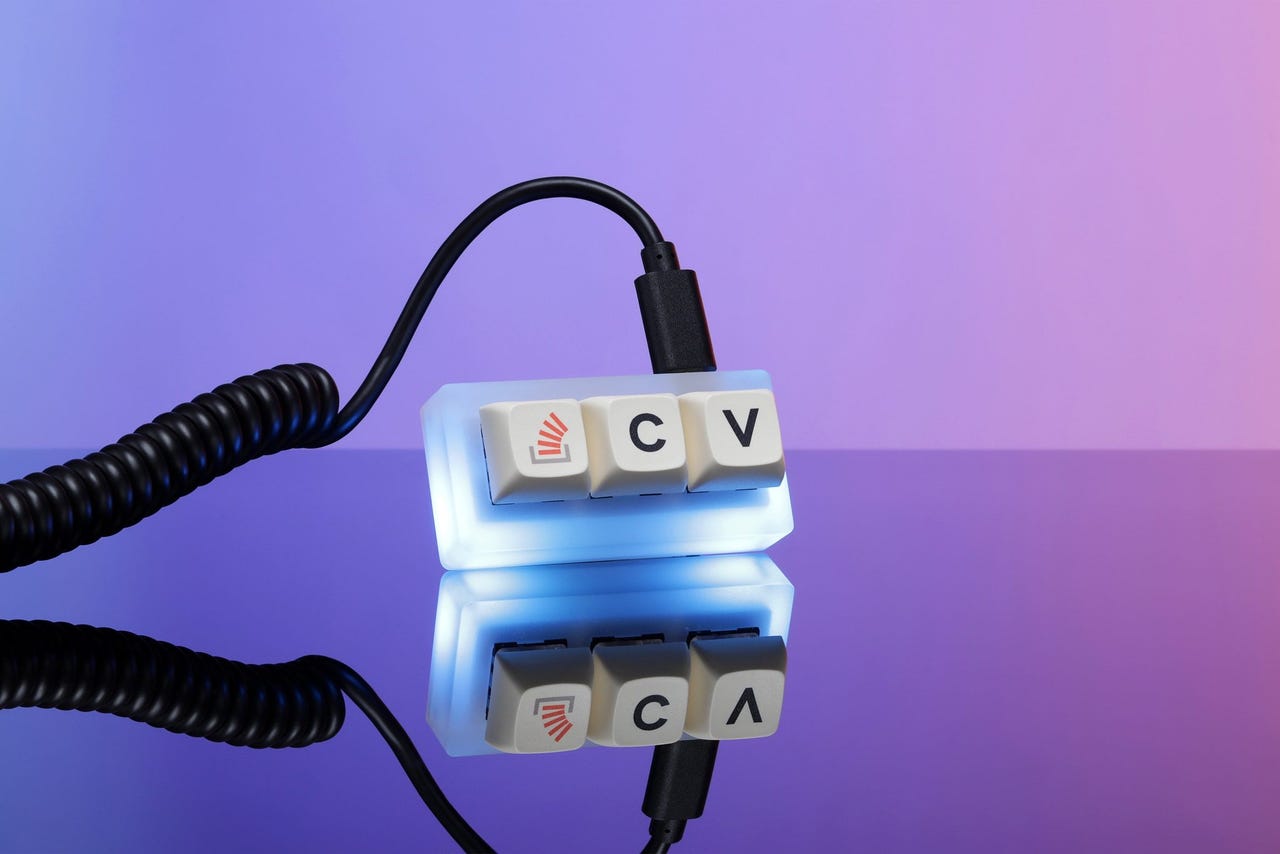
































Compact and cute, it's The Key V 2 Macropad.
Image: Stack OverflowA compact, tongue-in-cheek keyboard built solely to allow developers to copy and paste code has had an update and now comes with two RGB LEDs to light up the developer experience.
According to The Key keyboard maker, developer Q&A site Stack Overflow, the new RGB LEDs was one of "the most requested features".
Here's a list of the most popular programming languages and where to learn them
Read nowThe Key started out as an April Fool's joke in 2020, playing on the idea that many developers scour the web and Stack Overflow for open-source code snippets to solve their programming problems.
SEE:Remote work vs office life: Lots of experiments and no easy answers
Certainly, developers are keen on re-using code when they can: according to separate research, nearly half (44%) said they copied and pasted up to 50 lines of code a week from other sources, while a third (33%) said they copied somewhere between 50 and 100 lines a week; 13% said they copied 100 to 500 lines a week.
The Key V 2 Macropad mechanical keyboard features a StackOverflow 'Control' key, a C and a V. It also comes with a coiled USB chord and an acrylic case.
"Unlike the original, The Key V2 is hot-swappable -which means you can change out its switches without soldering. Another new addition is a V2-exclusive acrylic case, which elegantly accents onboard RGB LEDs previously hidden within V1's black case," Stack Overflow says.
Users can also adjust the RGB lightening settings.
The Key 2 is available once again on Drop for a price of$29. There are 4,900 units currently available and so far 3,300 units have been bought. A portion of sales is allocated to the digitalundivided project.
"Remember, good artists copy, great artists steal, greatest artists copy, then paste," writes Ben Popper, Stack Overflow's director of content.
However, developers ought to be careful about exactly what they copy and paste. A 2020 study by engineers at IDE maker JetBrains looking at Java projects on GitHub discovered that 29.6% of blocks of code might be involved in potential code-borrowing -and 9.4% of them could potentially violate original licenses.
 Tags chauds:
affaires
développeur
Tags chauds:
affaires
développeur